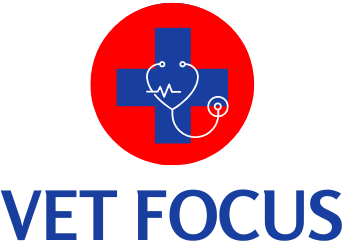The general health and quality of life of our animal companions depend on having healthy teeth. Animals can experience dental issues that impact their comfort, behavior, and overall health, just like people do. In this blog article, we are going to dive into the topic of veterinary dentistry and examine the significance of dental health in animals as well as the steps necessary to ensure our furry friends have the best possible oral hygiene.

Below are 6 significances of Veterinary Dentistry:
1. The Importance of Animal Dental Health:
Dental health is important for an animal's general health and is not only about having a grin that sparkles. Inadequate dental care can result in discomfort, agony, and a number of health problems. Periodontal disease, tooth decay, and oral tumors are a few examples of dental conditions that can harm key organs and cause discomfort, infections, and difficulties eating. Animals can live better overall lives if their teeth are kept in good condition.
2. Dental Exams and Diagnostic Methods:
Routine dental exams are vital for identifying dental problems at an early stage. The veterinarian will visually examine the oral cavity, use probes to gauge the condition of the gums, and maybe advise radiographic imaging (dental X-rays) to assess the teeth and supporting structures. These diagnostic methods aid in finding oral issues that might not be apparent to the naked eye.

3. Animal Dental Diseases and oral Anatomy:
Recognizing and treating animal dental diseases require a thorough understanding of the oral anatomy of the affected species. Because every animal species has a different set of teeth, every species can experience dental illness in a different way. Periodontal disease (also known as gum disease), tooth decay, broken teeth, oral malignancies, and malocclusions are among the most prevalent dental issues in animals. To provide prompt treatment for these illnesses, it is critical to recognize the signs and symptoms.
4. Dental Scaling and Polishing:
To get rid of plaque and tartar buildup on the teeth, professional dental scaling and polishing is required. To protect the animal's wellbeing and safety, this surgery is carried out under general anesthesia. Dental scaling involves removing tartar from both above and below the gum line, then polishing the teeth to leave a flat surface that prevents the growth of plaque. This promotes gum health and shields the mouth from developing new dental issues.

5. Oral surgery and dental extractions:
In some circumstances, it may be required to treat advanced dental disorders or relieve discomfort with oral surgery or dental extractions. In dental extractions, teeth that are severely decaying or infected are removed. Oral surgery can be done to repair malocclusions, remove oral tumors, and other oral problems. To protect the animal's wellbeing, these treatments necessitate careful planning, appropriate anesthetic, and post-operative pain control.
6. Dental treatments:
After dental treatments, it is crucial to adhere to the veterinarian's post-operative care guidelines. This could involve at-home oral care regimens, recommendations for particular diets, and pain management. The veterinarian can monitor the healing process, correct any issues, and make extra oral care suggestions during follow-up visits.

In order to maintain an animal's dental health and general wellbeing, veterinary dentistry is essential. We can give our cherished animal patients the best dental care possible by comprehending the importance of dental care, spotting typical dental issues, and working with veterinary professionals. Regular dental checkups, preventative measures, and prompt treatment help our animal friends have healthier smiles and happier lives. Keep in mind that a pet with a healthy mouth will be happier and healthier.
For additional recommendations and guidance about veterinary science as well as practice, Kindly visit our website thevetfocus.com
Also explore Vet Focus's "Flashcards and Quiz Bundle", which includes Veterinary Pharmacology, Equine Health, and Diseases and Conditions. These bite-sized bursts of knowledge are designed to sharpen your learning in the field of veterinary medicine.


